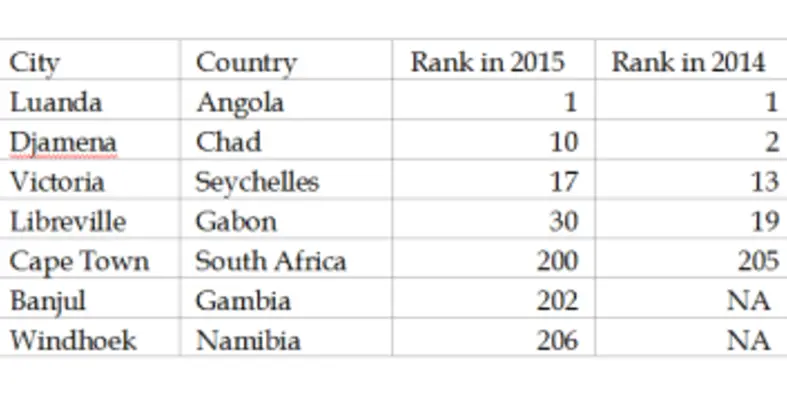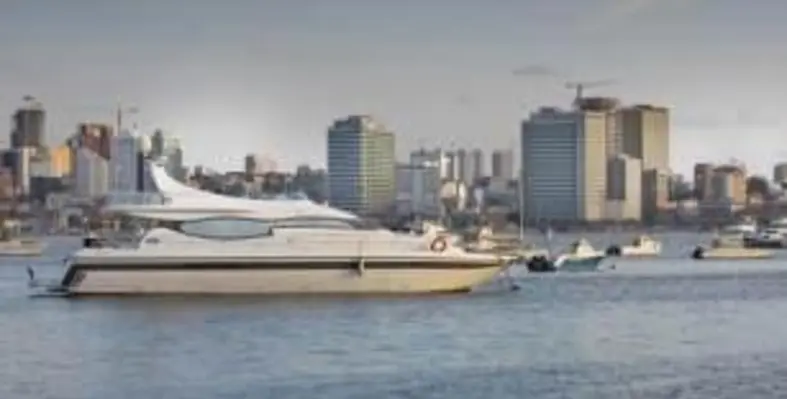Angolan capital Luanda has been named as the costliest place for expatriates to live in by the Mercer 2015 Cost of Living Survey
Luanda has topped the global list of most expensive cities to live in, followed by Hong Kong and Zurich. Despite being recognised as a relatively inexpensive city, the cost of imported goods and safe living conditions in the Angolan capital are available at a steep price, stated the survey.
Other African cities include the Chadian capital N’Djamena at 10th place, Victoria at 17th and Libreville at 30th. Namibian capital Windhoek is the second-last on the list of 207 countries surveyed while Gambian capital Banjul has taken the 202nd spot. South Africa’s expat hub Cape Town also figures in the bottom at 200th place. The city’s ranking, which has risen from last year by five spots, however remains at the bottom of the list mainly due to the weakening Rand against the US dollar.
Currency fluctuations, driven by economic and political unrest, have led to changes in expat packages, stated the survey. (see table below)

With the goal to provide companies a balance in costs while deciding expatriates’ overseas assignments, the survey has included a range of factors such as the current housing markets and inflation of goods – which can affect the cost of doing business.
Ilya Bonic, senior partner and president of Mercer’s talent business, said, “As the global economy has become increasingly interconnected, close to 75 per cent of multinational organisations are expecting long-term expatriate assignments to remain stable or increase over the next two years to address business needs. Sending employees abroad is necessary to compete in markets and for critical talent, and employers need a reliable and accurate reflection of the cost to their bottom line.”
Aligning workforce and mobility strategies by ensuring the right employees are in the right places is more critical than ever to manage globalisation, added Bonic, saying proper compensation of employees on international assignments is as important as it is costly. This is especially important for emerging mobility programmes with smaller pools of candidates and higher business needs for sending employees on international assignments.
“It is essential that these organisations have accurate and transparent data as they consider how to compensate fairly and in line with market demands,” he added.
In the Middle East, Tel Aviv at 18th place has emerged the most expensive city for expats, followed by financial centres Dubai, which stands at rank 23 and UAE’s capital Abu Dhabi is at rank 33. Saudi Arabia’s Jeddah, at rank 151, has been declared the least expensive city in the Middle East, despite climbing 24 spots from last year.
For this survey, New York has been considered as the base city, and all cities have been compared against it. Currency movements too have been measured against the US dollar. The survey includes 207 cities across five continents and measures the comparative cost of more than 200 items in each location, including housing, transportation, food, clothing, household goods, and entertainment.





